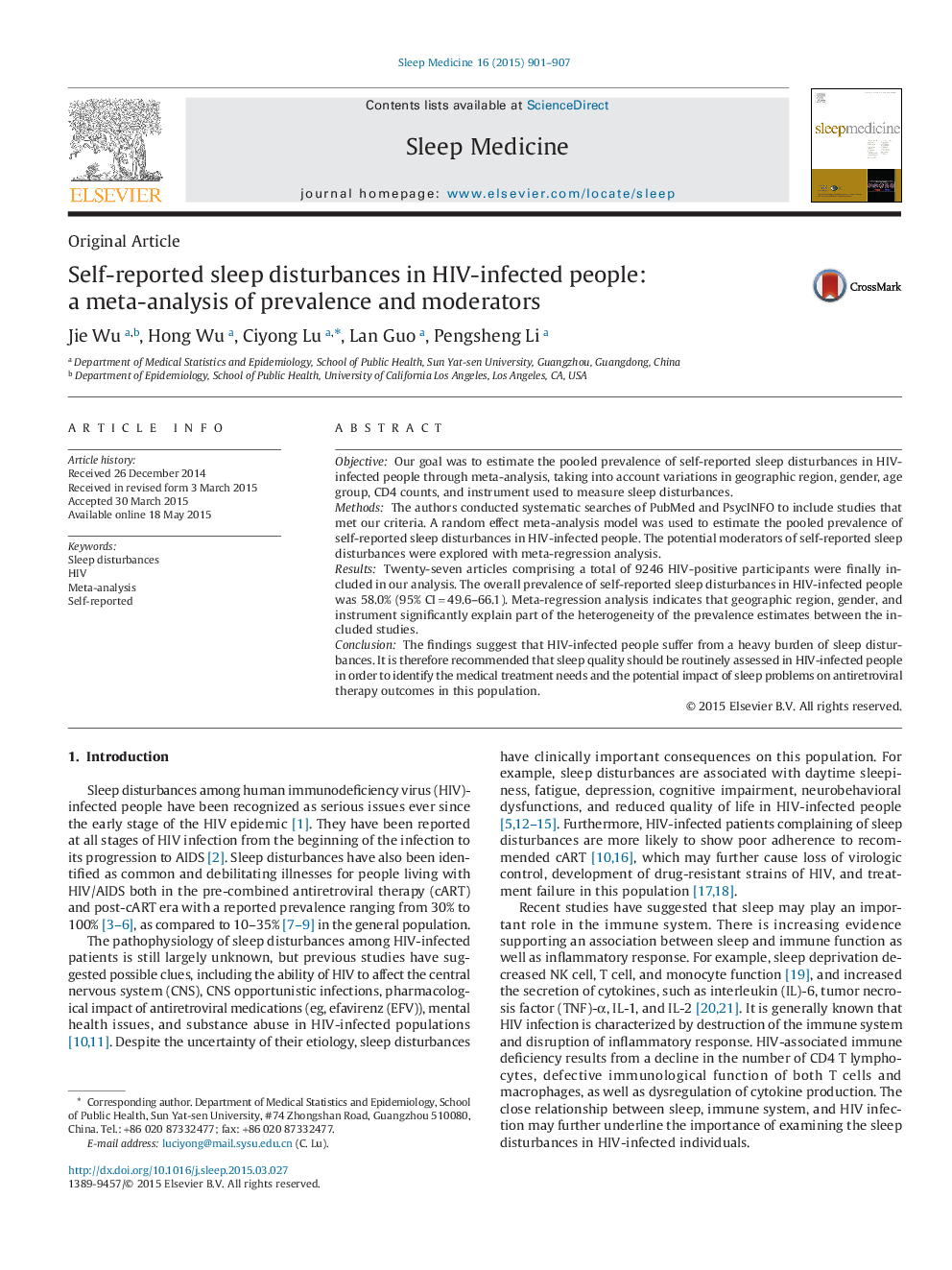| Article ID | Journal | Published Year | Pages | File Type |
|---|---|---|---|---|
| 3175851 | Sleep Medicine | 2015 | 7 Pages |
•Meta-analysis of self-reported sleep disturbance prevalence in HIV-infected people.•Meta-regression was used to explore potential moderators of prevalence.•HIV-infected persons suffer from a heavy burden of sleep disturbances.•Female HIV-infected persons are at higher risk of reporting sleep disturbances.
ObjectiveOur goal was to estimate the pooled prevalence of self-reported sleep disturbances in HIV-infected people through meta-analysis, taking into account variations in geographic region, gender, age group, CD4 counts, and instrument used to measure sleep disturbances.MethodsThe authors conducted systematic searches of PubMed and PsycINFO to include studies that met our criteria. A random effect meta-analysis model was used to estimate the pooled prevalence of self-reported sleep disturbances in HIV-infected people. The potential moderators of self-reported sleep disturbances were explored with meta-regression analysis.ResultsTwenty-seven articles comprising a total of 9246 HIV-positive participants were finally included in our analysis. The overall prevalence of self-reported sleep disturbances in HIV-infected people was 58.0% (95% CI = 49.6–66.1). Meta-regression analysis indicates that geographic region, gender, and instrument significantly explain part of the heterogeneity of the prevalence estimates between the included studies.ConclusionThe findings suggest that HIV-infected people suffer from a heavy burden of sleep disturbances. It is therefore recommended that sleep quality should be routinely assessed in HIV-infected people in order to identify the medical treatment needs and the potential impact of sleep problems on antiretroviral therapy outcomes in this population.
